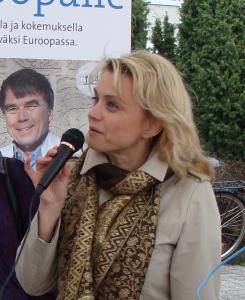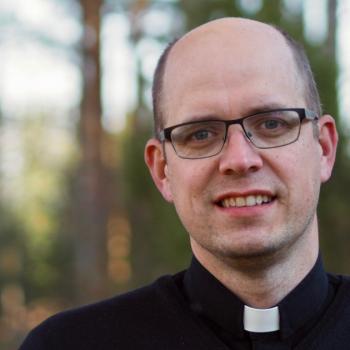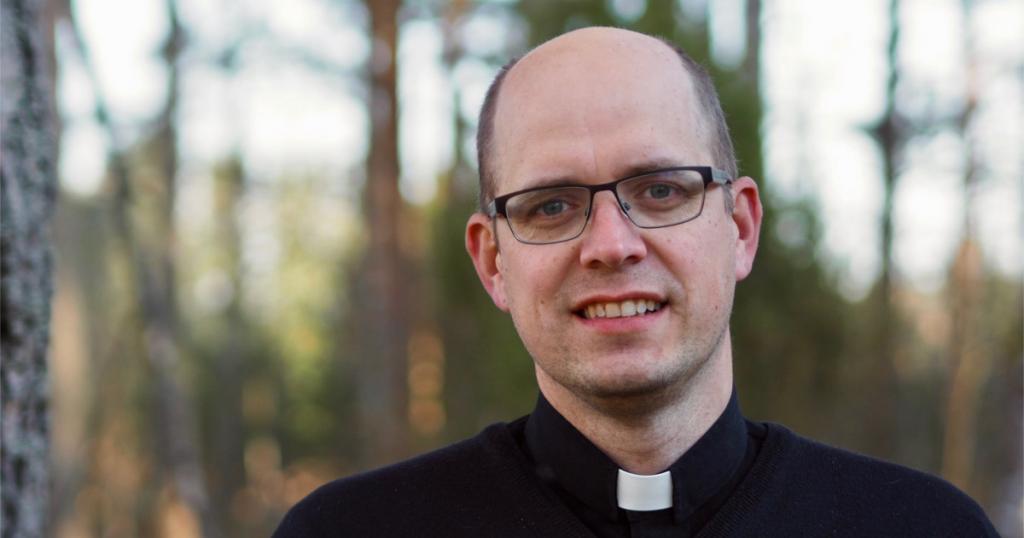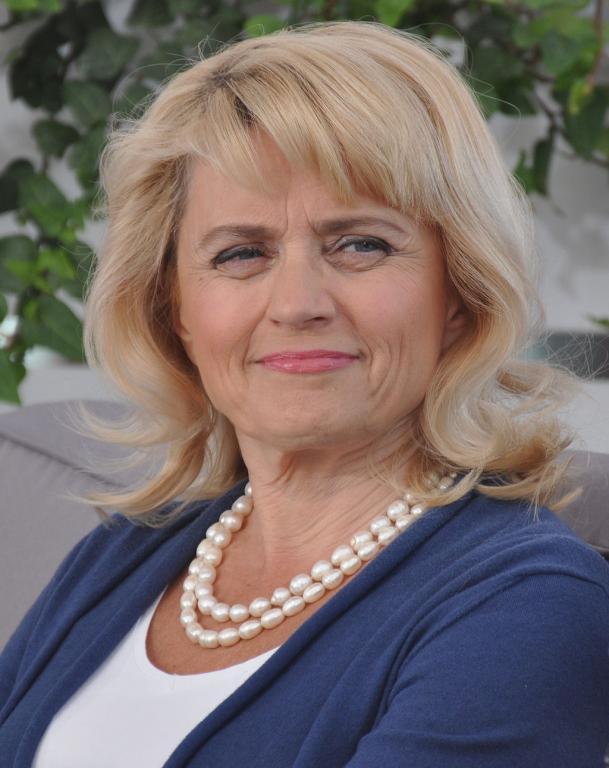Last year I blogged about how a Finnish pastor and a laywoman who is a member of the Finnish parliament were being investigated by authorities for teaching what the Bible says about homosexuality. Now prosecutors have taken the step of issuing criminal charges against them and taking them to trial.
And lest we think that such persecution of believing Christians, while regrettable, at least is a problem on foreign shores far away from us, the individuals facing prison for their beliefs have direct ties to the Lutheran Church Missouri-Synod here in the United States.
I blogged about these two cases last year in my post Criminalizing Christian Teachings about Sex. Please read that.
Dr. Päivi Räsänen, a medical doctor and a member of parliament–who once was Minister of the Interior, no less–wrote a booklet in 2004 entitled Male and Female He Created Them (for an English translation, click the link), arguing that “Homosexual relationships challenge the Christian concept of humanity.”
Her book was published by the Evangelical Lutheran Mission Diocese of Finland (ELMDF), a church body in full altar and pulpit fellowship with the Lutheran Church Missouri Synod. Its bishop-elect is Rev. Dr. Juhana Pohjola, who earned his STM from Concordia Theological Seminary in Ft. Wayne, Indiana, an LCMS institution, where he also served as a Visiting Scholar.
Finnish prosecutors began investigating Dr. Räsänen in 2019, believing that her book–printed with the support of the Lutheran Heritage Foundation, a Recognized Service Organization of the Lutheran Church Missouri Synod–could constitute a violation of the law against “incitement against a group of people.” They also began an investigation of Rev. Pohjola, since he approved the book’s publication.
 Prosecutors also found other incidents that could be considered criminal: she posted a tweet critical of the state church for being a sponsor of the Gay Pride parade, quoting Romans 1:24-27; and she gave the wrong answer when she was invited to speak on Finnish public radio on the topic of “what would Jesus think of the homosexual?”
Prosecutors also found other incidents that could be considered criminal: she posted a tweet critical of the state church for being a sponsor of the Gay Pride parade, quoting Romans 1:24-27; and she gave the wrong answer when she was invited to speak on Finnish public radio on the topic of “what would Jesus think of the homosexual?”
Now both Dr. Räsänen and Rev. Pohjjola have been formally charged. They face up to two years in prison.
The Prosecutor General said that the book and statements from the pair are derogatory to homosexuals and therefore “overstep the boundaries of freedom of speech and religion.”
Finland, as a liberal democracy, ostensibly holds to the freedom of speech and the freedom of religion, but, according to this determination, those are trumped by the LGBT cause. Nevermind that the book came out 13 years before Finland legalized same-sex marriage, when the issue was still a matter of debate.
Rev. Pohjola said this after he was charged:
“As a Christian, I do not want to and cannot discriminate against or despise anyone created by God. Every human being, created by God and redeemed by Christ, is equally precious. . . .This does not remove the fact that, according to the Bible and the Christian conception of man, homosexual relations are against the will of God, and marriage is intended only between a man and a woman. This is what the Christian church has always taught and will always teach.”
A European evangelical site quotes Dr. Räsänen:
Räsänen has repeatedly said “the teachings concerning marriage and sexuality in the Bible arise from love, not hate”, because “the core message of faith, i.e. grace and atonement, is founded on the Christian view of humanity seen in creation, on the one hand, and the great fall, on the other”.
She also has made clear that she supports the dignity and human rights of all homosexuals, because “the Christian view of human beings is based on the inherent and equal dignity of all persons”. . . .
The Christian politician underlined the importance that citizens in democratic countries use the fundamental right to express their opinions: “The more Christians keep silent on controversial themes, the narrower the space for freedom of speech gets”.
I met both Päivi Räsänen and Juhana Pohjola when I was in Finland for a series of speaking engagements and had lunches with each of them. This was before their legal troubles broke out. I was greatly impressed with both of them. Here is a Christian living out her faith in her vocation as a public official and doing so effectively–rising in her party to be named Minister of the Interior– in a highly secularist country. Here is a pastor who is faithfully proclaiming the Word of God and presiding over congregations whose members adhere to that Word, despite the secularism even of the state church. I was inspired by the many devoted Christians I met there. (See my post on the state of confessional Lutheranism in Finland.)
I believe that the opposition they face makes them stronger in the faith. We Americans have it so much easier. And yet, we too may someday face similar persecution. It is already touching us Missouri Synod Lutherans because of our fellowship with the Finnish church body that is under attack.
A FINAL THOUGHT: Is this what conservative Christians will all face if the Equality Act, which allows LGBT claims to trump religious liberty claims, becomes the law of the land?
Photos:
Rev. Dr. Juhana Pohjola, dean and bishop-elect via The Evangelical Lutheran Mission Diocese of Finland
Päivi Räsänen by Eurooppalainen Suomi ry, CC BY 2.0 <https://creativecommons.org/licenses/by/2.0>, via Wikimedia Commons













